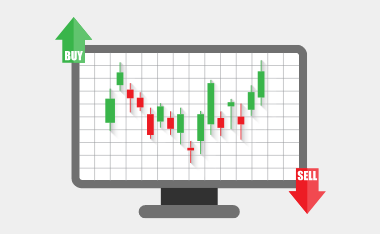Building a Successful Forex Trading Income in Australia

Forex trading, the practice of buying and selling currencies to profit from their fluctuations, has become increasingly popular among Australians.
The allure of the forex market lies in its accessibility, liquidity, and the potential for substantial gains.
However, trading forex from Australia presents unique challenges that traders must navigate to achieve success.
These challenges range from the need for robust risk management strategies to the specific legal and regulatory environment in Australia, as well as the practical difficulties associated with time zone differences.
This article explores the key challenges faced by Australian forex traders and offers insights into how to overcome them.
Navigating Regulatory and Compliance Issues
One of the most significant challenges for forex traders in Australia is understanding and complying with the regulatory framework.
The Australian Securities and Investments Commission (ASIC) is the regulatory body responsible for overseeing forex trading activities in Australia.
ASIC imposes strict regulations to protect retail traders from excessive risk and ensure that brokers operate transparently and fairly.
In recent years, ASIC has introduced several measures aimed at curbing high-risk trading practices, including restrictions on leverage for retail traders.
These regulations are designed to reduce the risk of significant losses, particularly for inexperienced traders.
However, they also limit the potential for large gains, which can be frustrating for those looking to maximise their returns.
Compliance with these regulations requires traders to be diligent and well-informed. Australian forex traders must ensure they are trading with a broker that is ASIC-regulated and adheres to the latest regulatory requirements.
Additionally, they need to stay updated on any changes in the regulatory landscape, as non-compliance can lead to penalties or the inability to continue trading.
Managing Time Zone Differences
The global nature of the forex market means that it operates 24 hours a day, five days a week, across different time zones. For Australian traders, this presents a unique challenge.
The most active and liquid trading sessions occur during the overlap of the London and New York sessions, which typically take place late at night and in the early hours of the morning in Australian time.
This time difference can make it difficult for Australian traders to participate in the most lucrative trading opportunities, as it requires staying up late or waking up early to monitor the markets.
This can lead to sleep deprivation and fatigue, which can negatively impact decision-making and overall trading performance.
To manage this challenge, Australian traders need to develop a trading schedule that aligns with their personal lifestyle and market activity.
Some traders may choose to focus on the Sydney and Tokyo sessions, which are more compatible with Australian time zones but may offer lower volatility and fewer trading opportunities.
Dealing with Market Volatility and Risk
Forex trading is inherently risky, and market volatility can lead to substantial gains or losses within a short period. Australian traders face the challenge of managing this risk while attempting to capitalise on market movements.
Effective risk management is crucial to long-term success in forex trading, and this requires a disciplined approach to trading.
One of the key risk management strategies is to use stop-loss orders, which automatically close a trade when the market moves against the trader’s position by a certain amount.
This helps to limit potential losses and protect trading capital.
However, setting stop-loss orders too tightly can result in being stopped out of a trade prematurely, while setting them too loosely can expose the trader to larger-than-expected losses.
Another important aspect of risk management is position sizing.
Traders should only risk a small percentage of their trading capital on any single trade, typically no more than 1-2%.
This ensures that even if a trade goes against them, the overall impact on their portfolio is minimal. Australian traders must also be aware of the impact of leverage, which can amplify both gains and losses.
While high leverage can increase profit potential, it also increases the risk of significant losses, particularly in a volatile market.
Balancing Trading with Personal Life
Forex trading can be demanding, particularly for those who trade part-time or alongside other commitments.
The need to monitor the markets, conduct research, and manage trades can take up a significant amount of time, leading to challenges in maintaining a healthy work-life balance.
Australian traders may find it challenging to balance their trading activities with their personal and professional lives, especially if they are trying to trade during the most active market sessions that occur late at night or early in the morning.
This can lead to burnout, stress, and a negative impact on mental and physical health.
To address this challenge, it’s important for traders to establish a structured trading routine that allows for adequate time for family, work, and relaxation.
This might involve setting specific trading hours, automating certain aspects of the trading process, or focusing on longer-term trading strategies that require less frequent monitoring.
Staying Informed and Adapting to Market Changes
The forex market is constantly evolving, influenced by global economic events, geopolitical developments, and changes in monetary policy.
For Australian traders, staying informed about these factors is essential for making informed trading decisions.
However, keeping up with the latest news and market developments can be time-consuming and overwhelming, particularly given the fast pace of the market.
Traders need to be proactive in their approach to staying informed, regularly reading financial news, attending webinars, and participating in trading forums.
Additionally, they must be adaptable and willing to adjust their trading strategies in response to changing market conditions.
This flexibility is crucial for navigating periods of market volatility or uncertainty, such as during economic recessions, political elections, or major global events like the COVID-19 pandemic.
Developing and Maintaining Discipline
Discipline is a critical factor in successful forex trading, yet it can be one of the most challenging aspects to master.
Australian traders must develop and maintain discipline in several areas, including sticking to a trading plan, managing risk effectively, and avoiding emotional trading decisions.
A trading plan is a comprehensive guide that outlines a trader’s strategy, including entry and exit points, risk management rules, and profit targets.
Sticking to this plan requires discipline, especially during periods of market volatility when emotions can run high.
Traders who lack discipline may be tempted to deviate from their plan, leading to impulsive decisions and potentially significant losses.
One way to develop discipline is through consistent practice and reflection.
By keeping a trading journal, traders can track their performance, identify areas for improvement, and reinforce the importance of following their plan.
Over time, this practice can help build the discipline needed to succeed in the highly competitive world of forex trading.
Does Your International Trading Coach Understand Your Specific Needs as an Australian-based trader?
When considering trading coaches and educators, it’s crucial for Australian traders to recognise that those who aren’t based in Australia may lack a deep understanding of the unique challenges faced by Australian traders.
Forex trading in Australia comes with its own set of regulatory, logistical, and market-specific factors that can significantly impact trading strategies and outcomes.
Coaches and educators operating from other regions might not fully appreciate the implications of ASIC regulations, the influence of Australian economic indicators, or the time zone challenges that come with trading in global markets.
For example, an international coach might recommend trading strategies that are optimal for markets during the London or New York sessions, which may not be as practical or effective for Australian traders due to the time zone differences.
Australian traders often face the choice of either trading in less volatile sessions, such as the Sydney or Tokyo sessions, or adjusting their daily routine to trade during peak global market hours.
A coach unfamiliar with these challenges might not provide strategies that account for the physical and mental demands of trading during off-hours, leading to advice that is less applicable or even detrimental to an Australian trader’s success.
Moreover, trading coaches who are not well-versed in Australian-specific legal and tax considerations may inadvertently overlook critical aspects that could affect a trader’s financial outcomes.
For instance, they might not be familiar with the nuances of Australian tax laws as they apply to trading income, or the specific compliance requirements mandated by ASIC.
Therefore, while international trading coaches can offer valuable insights and strategies, Australian traders should be cautious and consider supplementing this advice with local expertise to ensure it aligns with their specific circumstances.
Consider using Australian qualified tax professionals and financial providers to ensure your compliance and safety.
My Final Words about Forex Trading from Australia
Forex trading in Australia presents a unique set of challenges, from navigating the regulatory environment to managing time zone differences and market volatility.
However, with the right approach, these challenges can be effectively managed, allowing traders to capitalise on the opportunities presented by the global currency market.
Australian traders must prioritise risk management, stay informed about market developments, and maintain a disciplined approach to trading.
By doing so, they can navigate the complexities of the forex market and work towards achieving their financial goals.
Disclaimer
The information in this article is intended to be general information in nature and is NOT general financial product advice, nor personal financial product advice.
It does not take into account your objectives, financial situation or needs.
Past performance is not necessarily indicative of future performance.
Any results on our website, including this page, are illustrative of concepts only and should not be considered average results, or promises for actual or future performance.
The Trading Coach International does not operate under an Australian Financial Services Licence (AFSL), as the services we provide do not require one.
Speak with your registered financial advisor before making any financial decisions.




















